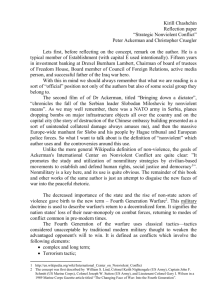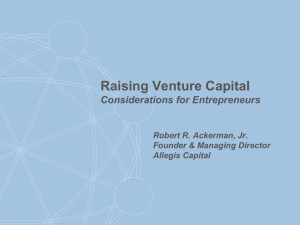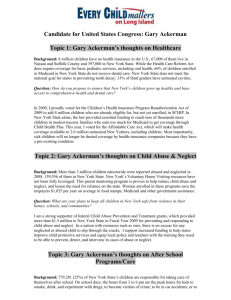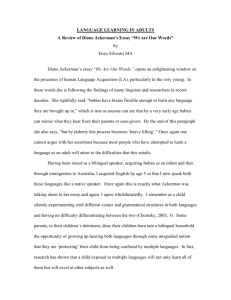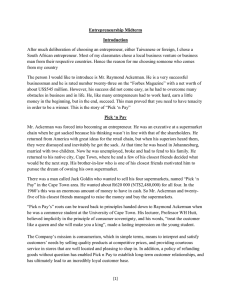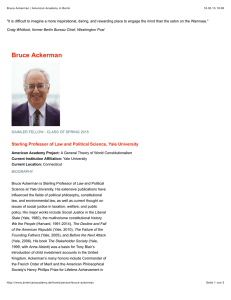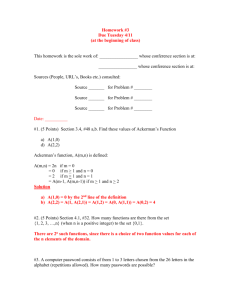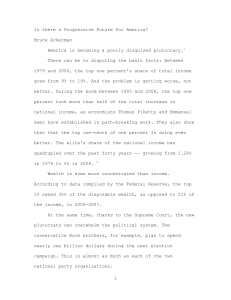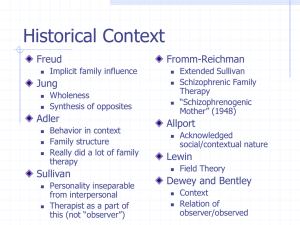Bruce Ackerman Summary
advertisement
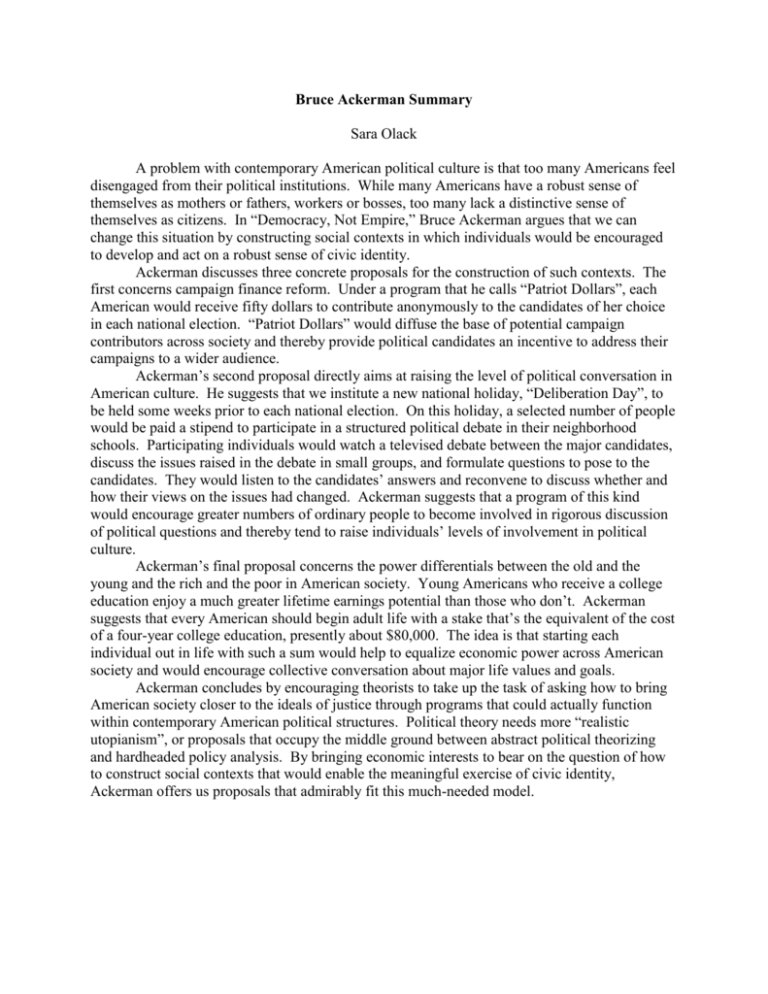
Bruce Ackerman Summary Sara Olack A problem with contemporary American political culture is that too many Americans feel disengaged from their political institutions. While many Americans have a robust sense of themselves as mothers or fathers, workers or bosses, too many lack a distinctive sense of themselves as citizens. In “Democracy, Not Empire,” Bruce Ackerman argues that we can change this situation by constructing social contexts in which individuals would be encouraged to develop and act on a robust sense of civic identity. Ackerman discusses three concrete proposals for the construction of such contexts. The first concerns campaign finance reform. Under a program that he calls “Patriot Dollars”, each American would receive fifty dollars to contribute anonymously to the candidates of her choice in each national election. “Patriot Dollars” would diffuse the base of potential campaign contributors across society and thereby provide political candidates an incentive to address their campaigns to a wider audience. Ackerman’s second proposal directly aims at raising the level of political conversation in American culture. He suggests that we institute a new national holiday, “Deliberation Day”, to be held some weeks prior to each national election. On this holiday, a selected number of people would be paid a stipend to participate in a structured political debate in their neighborhood schools. Participating individuals would watch a televised debate between the major candidates, discuss the issues raised in the debate in small groups, and formulate questions to pose to the candidates. They would listen to the candidates’ answers and reconvene to discuss whether and how their views on the issues had changed. Ackerman suggests that a program of this kind would encourage greater numbers of ordinary people to become involved in rigorous discussion of political questions and thereby tend to raise individuals’ levels of involvement in political culture. Ackerman’s final proposal concerns the power differentials between the old and the young and the rich and the poor in American society. Young Americans who receive a college education enjoy a much greater lifetime earnings potential than those who don’t. Ackerman suggests that every American should begin adult life with a stake that’s the equivalent of the cost of a four-year college education, presently about $80,000. The idea is that starting each individual out in life with such a sum would help to equalize economic power across American society and would encourage collective conversation about major life values and goals. Ackerman concludes by encouraging theorists to take up the task of asking how to bring American society closer to the ideals of justice through programs that could actually function within contemporary American political structures. Political theory needs more “realistic utopianism”, or proposals that occupy the middle ground between abstract political theorizing and hardheaded policy analysis. By bringing economic interests to bear on the question of how to construct social contexts that would enable the meaningful exercise of civic identity, Ackerman offers us proposals that admirably fit this much-needed model.
